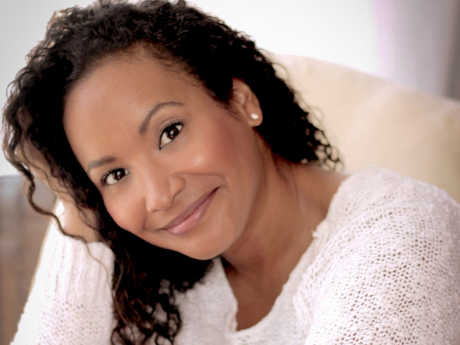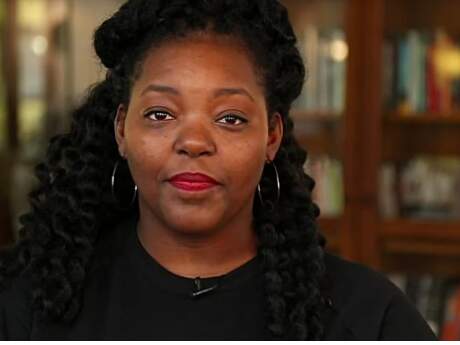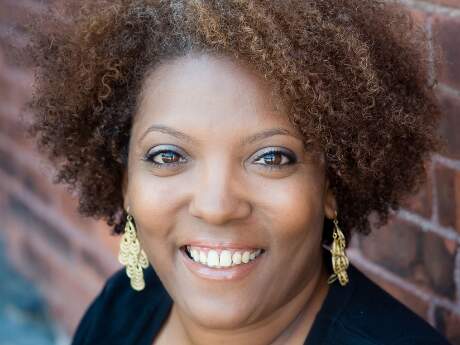Black Poets Speak Out
A Conversation with Maya Washington, BlackPoetsSpeakOut: Twin Cities curator

How does your BPSO event fit into the larger arts and social justice community in your city?
The Twin Cities has a vibrant political history in the area of civil rights, most notably through the legacy of former U. S. Vice President Hubert H. Humphrey (under Lyndon B. Johnson 1965-1969) and the University of Minnesota's Humphrey School of Public Affairs. We proudly claim activists like Roy Wilkins (Executive Director of the NAACP, 1964-1977), Bob Dylan and Winona LaDuke. A handful of former Freedom Riders also call Minnesota home.
Today, the Twin Cities is still very much a home for literary and performing arts organizations that value art as a vehicle for social justice. The result is an extremely fluid relationship between the arts and social justice community. As an artist who grew up in this environment, there is a sense that Minnesotans see the arts as a form of service. Social justice and art go hand in hand.
In a demonstration of political theatre in December, Black Lives Matter staged a protest at the Mall of America that attracted thousands of protesters and made the national news. The City of Bloomington is currently charging protest organizers with unlawful assembly, public nuisance, trespassing and disorderly conduct. A petition asking the Mall of America not to pursue charges has garnered over 40,000 signatures in addition to letters of support from lawmakers and local officials.
I approached Sarah Bellamy, the Co-Artistic Director of Penumbra Theatre Company to host our event because the organization has been a beacon in the African American and creative communities of Minneapolis/St. Paul for almost 40 years. For example, they presented August Wilson's first professional production and have produced more of Wilson's plays than any theatre in the world. Penumbra was among the first and only spaces actively engaging our community with town-hall discussions specifically addressing the events in Ferguson. It proved to be an ideal venue for Black Poets Speak Out.
We also included the ASL community in order to illuminate the ways in which public policy and police violence have also impacted the Deaf Community. Canae Weiss, a local performer who is deaf, shared the story of deaf activist Doug Bahl who was beaten by St. Paul police when he asked officers to communicate by writing on paper because he couldn't understand their commands. While a settlement was approved by the St. Paul City Council in 2013, this call to action by #BlackPoetsSpeakOut created a unique opportunity for solidarity between the Deaf and black communities.
As a poet, how does your work add to the narrative of arts activism as related to the Black Arts Movement?
As a poet who writes/creates across genres, I've looked to artists active during the Black Arts Movement as a field guide of sorts. I'm incredibly grateful for the ways in which they've paved the way for a uniquely American, unapologetically black aesthetic and form of activism that we can look to in times like these. As I mentioned earlier, growing up in the Twin Cities, art and social justice have always been intrinsically linked for me. During my formative years the contributions of elders Amiri Baraka, James Baldwin, Angela Jackson, Ntozake Shange, Maya Angelou, and others served as an affirmation of the artist I would become—a poet, actor, dancer, playwright, filmmaker, educator and activist all in the same breath. I can exist across genre and form, as black as I want to be, because of their legacy. My creative work, from a narrative perspective, undoubtedly speaks to my black American heritage because it's a lens through which I see the world. At the same time, that black lens is a human lens. I think, like our elders, I'm attempting to do what I feel needs to be done—to speak of and to the diversity of the black experience and demand that black pain be perceived as human pain.
What organizations or literary communities collaborated for your BPSO event?
A.R.T.I.S.T (Air Rhymes Theatrical Interpreting Services & Training, LLC), Million Artist Movement Minnesota, Penumbra Theatre Company, and White Space Poetry Project.
What poem would you suggest people see from BPSO archive and why?
"For Diallo" by Sha Cage. Sha embodies the idea of existing across form and genre as an artist and her work is fueled by a spirit of activism and testimony in a number of spaces. Sha is also a mother. I think at the center of all the shooting deaths is a reminder of the mothers left to grieve the loss of their children.
More Black Poets Speak Out
Introduction to #Blackpoetsspeakout by Mahogany L. Browne
#Blackpoetsspeakout, is a poetic protest which began as a tumblr page hosting a couple dozens of videos of black poets reading poetry, prayers and mantras in response to Michael Brown after his murder in Ferguson, Missouri on August 9, 2014, and the grand jury's decision on November 24 not to indict Darren Wilson, the police officer who fired the lethal bullets.
Read Article

